
The International Chess Federation or World Chess Federation, commonly referred to by its French acronym FIDE, is an international organization based in Switzerland that connects the various national chess federations and acts as the governing body of international chess competition. FIDE was founded in Paris, France, on July 20, 1924. Its motto is Gens una sumus, Latin for 'We are one Family'. In 1999, FIDE was recognized by the International Olympic Committee (IOC). As of December 21, 2023, there are 201 member federations of FIDE.

Alexander Aleksandrovich Alekhine was a Russian and French chess player and the fourth World Chess Champion, a title he held for two reigns.
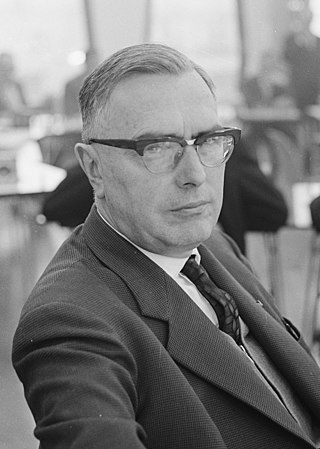
Machgielis "Max" Euwe was a Dutch chess player, mathematician, author, and chess administrator. He was the fifth player to become World Chess Champion, a title he held from 1935 until 1937. He served as President of FIDE, the World Chess Federation, from 1970 to 1978.

The World Chess Championship is played to determine the world champion in chess. The current world champion is Gukesh Dommaraju, who defeated the previous champion Ding Liren in the 2024 World Chess Championship.

José Raúl Capablanca y Graupera was a Cuban chess player who was the third world chess champion from 1921 to 1927. A chess prodigy, he is widely renowned for his exceptional endgame skill and speed of play.
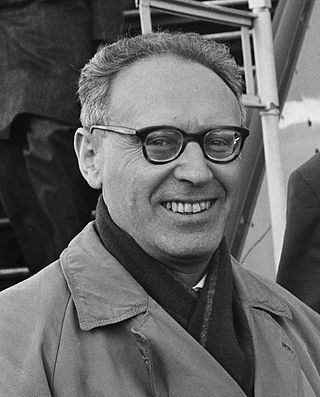
Mikhail Moiseyevich Botvinnik was a Soviet and Russian chess grandmaster who held five world titles in three different reigns. The sixth World Chess Champion, he also worked as an electrical engineer and computer scientist and was a pioneer in computer chess. He also had a mathematics degree (honorary).

Paul Keres was an Estonian chess grandmaster and chess writer. He was among the world's top players from the mid-1930s to the mid-1960s, and narrowly missed a chance at a World Chess Championship match on five occasions. As Estonia was repeatedly invaded and occupied during World War II, Keres was forced by the circumstances to represent the Soviet Union and Nazi Germany (1941–44) in international tournaments.

Alexander Alexandrovich Kotov (Алекса́ндр Алекса́ндрович Ко́тов; was a Soviet chess grandmaster and author. He was a Soviet chess champion, a two-time world title Candidate, and a prolific writer on the subject of chess. Kotov served in high posts in the Soviet Chess Federation, and wrote most of his books during the Cold War. The importance and breadth of Kotov's work rank him among the all-time greats in this field.

Reuben C. Fine was an American chess player, psychologist, university professor, and author of many books on both chess and psychology. He was one of the strongest chess players in the world from the mid-1930s until his retirement from chess in 1951. He was granted the title of International Grandmaster by FIDE in 1950, when titles were introduced.
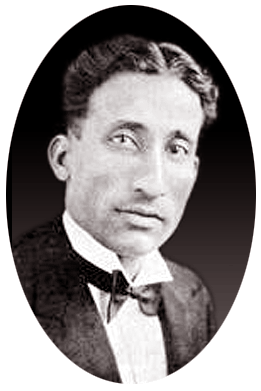
Sultan Khan was a chess player from British India, and later a citizen of Pakistan, who was the strongest Asian player of the early 1930s. The son of a Muslim landlord and preacher, Khan travelled with Colonel Nawab Sir Umar Hayat Khan, to Britain, where he took the chess world by storm. In an international chess career of less than five years (1929–33), he won the British Championship three times in four attempts, and had tournament and match results that placed him among the top ten players in the world. Sir Umar then brought him back to his homeland, where he gave up chess and returned to cultivate his ancestral farmlands in the area which became Pakistan. He lived there before dying in his sixties in the city of Sargodha. David Hooper and Kenneth Whyld have called him "perhaps the greatest natural player of modern times". In 2024 FIDE posthumously awarded him the title of Honorary Grandmaster.

Salomon Mikhailovich Flohr was a Czechoslovak and Soviet chess player and writer. He was among the first recipients of the title International Grandmaster from FIDE in 1950. Flohr dominated many tournaments of the pre-World War II years, and by the late 1930s was considered a contender for the World Championship. However, his patient, positional style was overtaken by the sharper, more tactical methods of the younger Soviet echelon after World War II.
Vladimirs Petrovs was a Latvian Russian chess player.
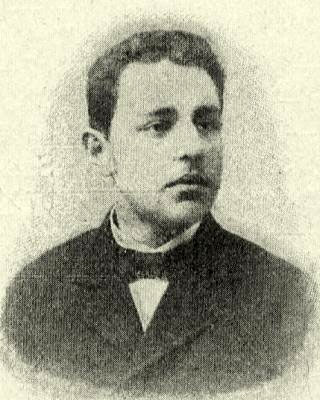
Ossip Samoilovich Bernstein was a French chess player and businessman. He was one of the inaugural recipients of the title International Grandmaster from FIDE in 1950.

Andor Arnoldovich Lilienthal was a Hungarian and Soviet chess player. In his long career, he played against ten male and female world champions, beating Emanuel Lasker, José Raúl Capablanca, Alexander Alekhine, Max Euwe, Mikhail Botvinnik, Vasily Smyslov, and Vera Menchik.

Erich Gottlieb Eliskases was a chess player who represented Austria, Germany and Argentina in international competition. In the late 1930s he was considered a potential contender for the World Championship. Eliskases was granted the title of Grandmaster by FIDE in 1952.
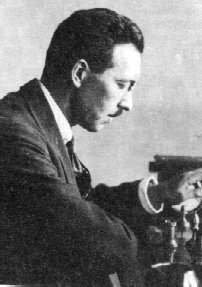
Grigory Yakovlevich Levenfish was a Soviet chess player who scored his peak competitive results in the 1920s and 1930s. He was twice Soviet champion, in 1934 and 1937. In 1937 he drew a match against future world champion Mikhail Botvinnik. In 1950 Levenfish was among the first recipients of the title of Grandmaster, awarded by FIDE that year for the first time.
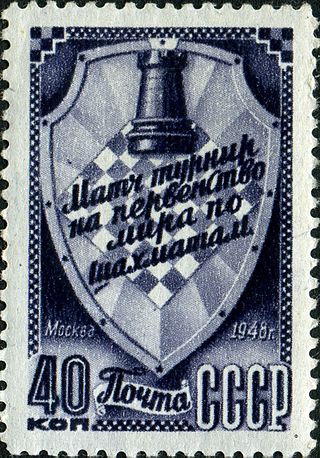
The 1948 World Chess Championship was a quintuple round-robin tournament played to determine the new World Chess Champion following the death of the previous champion Alexander Alekhine in 1946. The tournament marked the passing of control of the championship title to FIDE, the International Chess Federation which had been formed in 1924. Mikhail Botvinnik won the five-player championship tournament, beginning the era of Soviet domination of international chess that would last over twenty years without interruption.

Henri Grob was a Swiss chess player, artist, and painter. He was Swiss chess champion twice, and was awarded the title of International Master in 1950 at its inauguration. Grob pioneered eccentric chess openings, in particular 1.g4, about which he wrote a book. The opening is today commonly known as Grob's Attack, and it is this opening that brought him fame within chess communities around the globe rather than his results in chess competitions.
Zurich 1934 was an international chess tournament held in Zurich from 14 to 29 July 1934 to commemorate the 125th anniversary of Schachgesellschaft Zürich. Alexander Alekhine won, followed by Max Euwe and Salo Flohr tied for second-third. The tournament also served as the 1934 Swiss Championship, won by Hans Johner as the highest-ranking Swiss player.
Moscow 1935 was the second international chess tournament held in Moscow, taking place from 15 February to 15 March 1935. Salo Flohr and future world champion Mikhail Botvinnik tied for first, followed by former world champions Emanuel Lasker and José Raúl Capablanca.

















